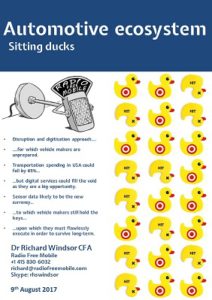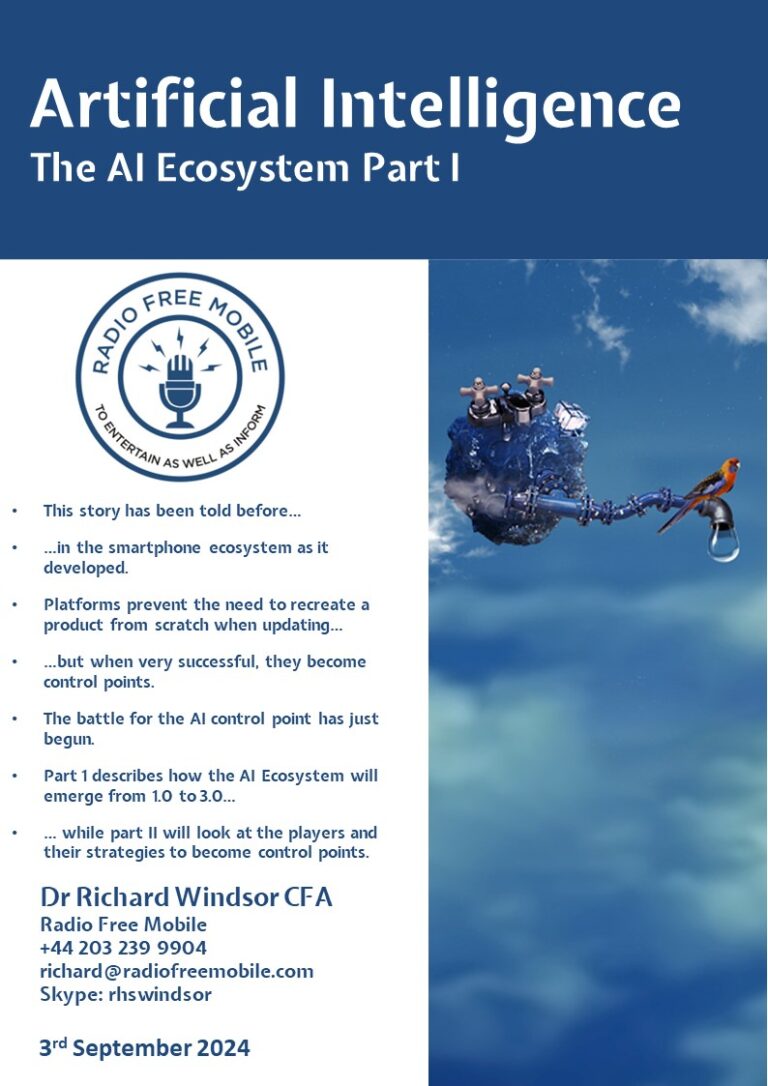RFM research subscribers will receive their copy directly by email.
Click here for a sample and below for purchase options
Transport is the next industry to be digitised and almost all vehicle makers are unprepared. Electric Vehicles (EVs) and autonomy could reduce overall USA transport spending by 65% which needs to be supplemented with digital services by players wishing to survive. RFM thinks that sensor data is the one area where vehicle makers have an edge and hence is critical to their future. They must control this asset or face becoming sitting ducks for those that would reduce them to handsets on wheels.
- Digital differentiation. Transport is ripe for disruption. Furthermore, there is a real possibility that demand for vehicle shipments falls substantially over the next 10-15 years. RFM thinks that embracing digital, controlling sensor data combined with a completely new way of thinking is required by vehicle makers wishing to survive for the long-term.
- Sensor data will be the new vehicular currency. RFM thinks that Digital Life services from smartphones will become ubiquitous and unlikely to offer value for vehicle makers. However, sensor data is unique, required for autonomy and critically, they still have a lock on access to it. RFM sees sensor data as the opportunity for vehicle makers to avoid severe disruption.
- The infotainment unit could become the most important part of the vehicle as it is where all the sensor data can be accessed in one place. Furthermore, it is the main digital interface with the user meaning that the digital user experience will be defined here.
- The gatekeepers. Despite the threat, RFM believes that the fact that OEMs are the gatekeepers to sensor data will give them a seat at the table as well as the opportunity to differentiate. How they execute on this is likely to define who survives and who does not.
- Monetisation. RFM calculates that Digital Life (smartphone only) in the vehicle could be worth $112 per user per year in USA or $32.1bn in revenues. The use of sensor data could drive that figure higher. Potential substantial falls in both the radio advertising ($17.7bn) market and transportation ($2.6tn) market provide a plentiful source for spending on new digital services.
- EVs and autonomy have the capacity to cause substantial declines in both vehicle shipments and transport spending as a whole. RFM calculates that manual EVs could reduce cost per mile to $0.40 per mile from $0.88 where it is today. Autonomy promises to reduce this still further to $0.29 per mile. There is huge economic incentive for consumers to switch to EVs which together with autonomy, could cause a 44% reduction in USA vehicle shipments.
- Sitting ducks. While vehicle makers are aware of the threat, many are in denial and few have any real idea how to address it. Most are easy targets for those that would reduce them to handsets on wheels.










Research Publication – ...
18 October 2024